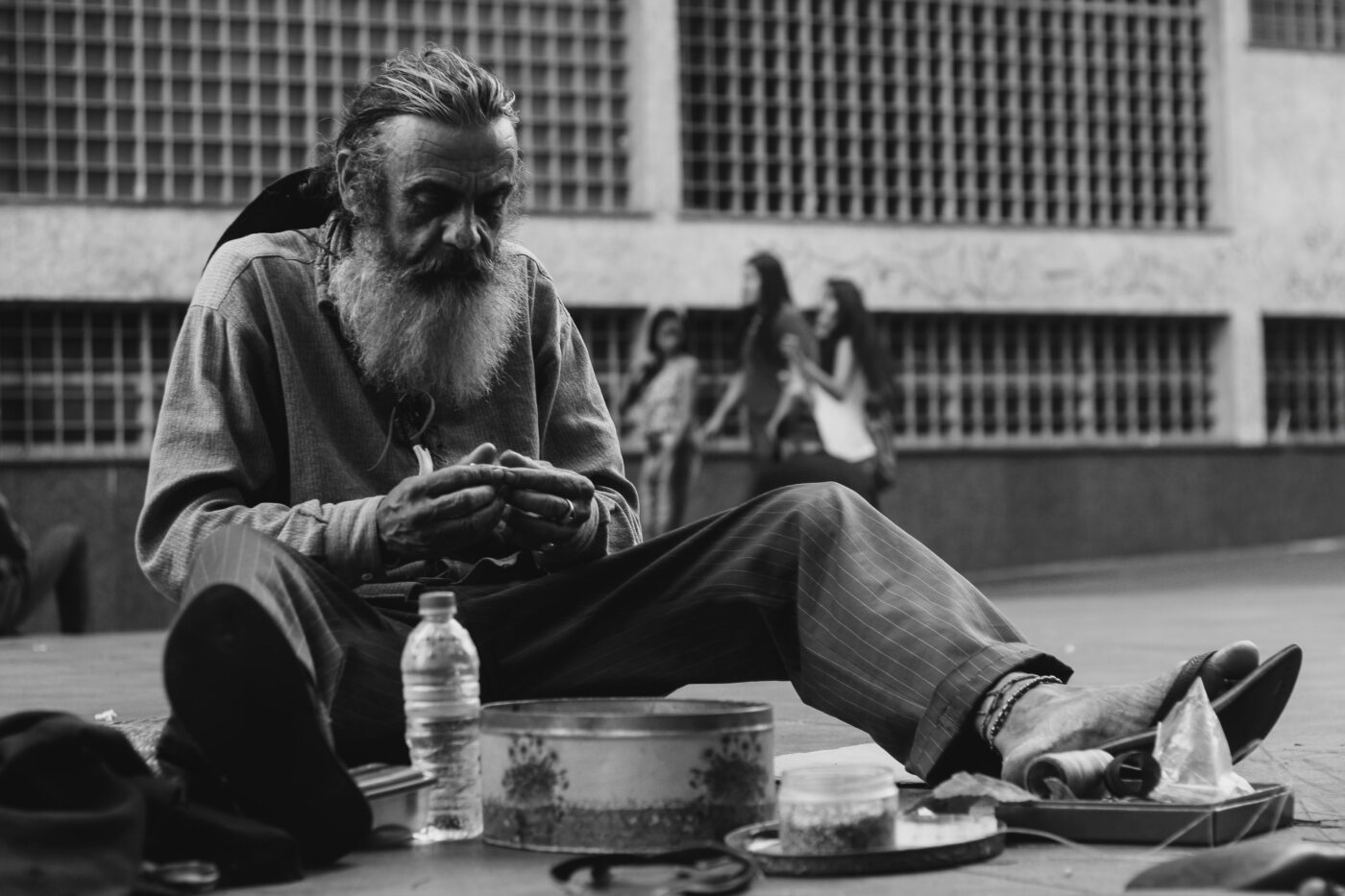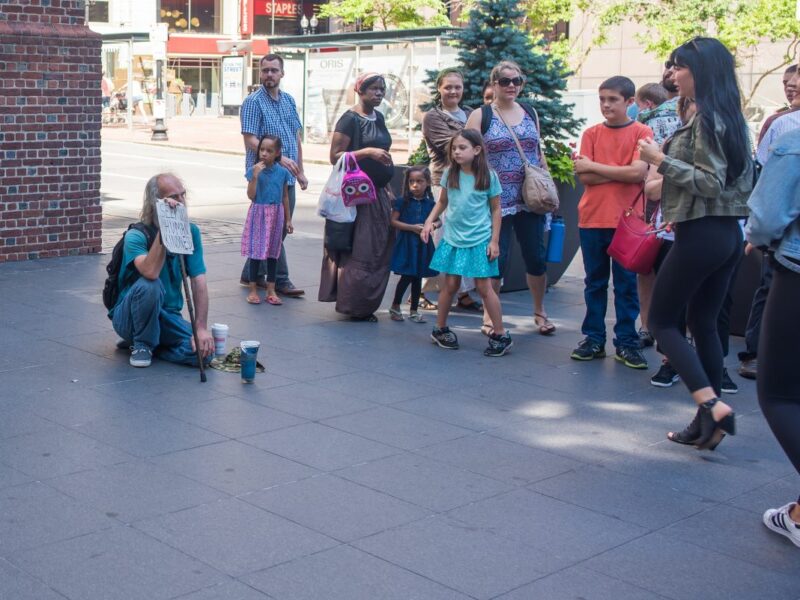The idea behind Universal Credit is logical: have one welfare system for everyone. If you are jobless, disabled or on a low income, you get the same system that treats everyone the same.
Prior to the roll out of the system, if you were:
- jobless you were given Jobseeker’s Allowance while you searched for work.
- on a low income and unable to make basic living standards from your job, you took Working Tax Credits.
- disabled you were eligible to Income Support or Incapacity Benefit and the enabling benefit, Disability Living Allowance.
For rent in each case, you were entitled to the local council’s Housing Benefit. It was a complex system that worked, especially before the system became punitive.
Let’s start with a positive story of how the old welfare system worked. I have been on disability benefits for 21 years now and am set to come off this year, avoiding Universal Credit as it is rolled out this year.
‘Don’t Worry – You’ll Be Out of Financial Problems Now’
In 1999, your writer had been unemployed for around a year and could not get a job. This was thanks to undiagnosed paranoid schizophrenia that had been tormenting me to the point I wanted to kill myself.
While some people fight their diagnosis and the doctors, diagnosis came as a blessed relief for me. Quite apart from my brain’s false reality being discounted by someone I wanted to trust, the doctor told me something to the effect of: “Don’t worry – you’ll be out of financial problems now. We will help you get something called Disability Living Allowance and you’ll be put on Income Support. You will only need to worry about getting well.”
Under the system your consultant grade doctor would write a report. The Department for Work and Pensions would use this as evidence.
Rehabilitation and the Road to Recovery
While undergoing treatment at the day hospital five days a week, I applied for and received a weekly income of around $250 plus rent. As I moved on through the health system, I was put in supported, shared social housing. For five years I was able to get on my feet again, making really good friends and enjoying life. Rehabilitation is as important as recovery – this is not something fully understood by politicians.
During this five-year period, I would start an adult education course that would qualify me to do a Master’s Degree. (I’d developed my illness during my Bachelor’s). Again the system was forgiving and thanks to my income I was the best paid student in the course.
Soon after graduation, I became self-employed as a writer. I was no longer entitled to Income Support. So, I was moved onto Working Tax Credits thanks to living on a private, low income. I was entitled to Housing Benefit and have lived in some pretty decent places over the years. As of today, I am certain due to the size of my private income I will come off state welfare benefits for the first time in 21 years.
Mine is a positive story. I transitioned from being extremely ill to recovery. Then I achieved a professional qualification, slowly built my business and came off the state’s pay check.
In 2008, the Prime Minister Gordon Brown-led government changed Income Support and Incapacity Benefit into a new Employment and Support Allowance. Simultaneously, a gradual change to a punitive welfare system took hold.
Fraud Myth Changes Welfare System
At the point I went on Tax Credits, the welfare system became punitive for those too sick to work. Employment Support Allowance was a welfare system largely built in reaction to negative stories in the UK media about people defrauding the state of money. Thanks to fake news stories in newspapers, opinion polls showed the public on average estimated a 30% fraud rate.
The fact is welfare fraud has not changed much in decades. In 2017, the UK Independent newspaper reported: In 2016/17, the Department for Work and Pensions estimates that £174.1 billion was spent on welfare. Of the total spent on welfare, £3.5 billion (2%) was given out in over-payments. Of the total over-payments, £2 billion worth of claims were considered fraudulent.
In 2013, the Full Fact website reported: “the level of fraud as a proportion of the size of the benefits bill has actually remained fairly constant between 0.6% and 0.8% in the past five years, and actually fell in the most recent year.”
To qualify for Employment and Support Allowance, the Work Capability Assessment was brought in. An independent health care professional, hired by the Department for Work and Pensions, would then assess whether a consultant grade doctor was right in their view that someone was in fact too ill to work. This could mean that a Registered General Nurse could decide that a Consultant Psychiatrist was wrong. The florid schizophrenic should go back to work.
Between December 2011 and February 2014, some 2,380 deaths were attributed to people who were declared fit for work. That equates to 91 unnecessary deaths a month, many of them by suicide.
Welfare Conditionality: Starvation and Homelessness?
Another aspect of the new regime has been the so-called welfare conditionality, commonly known as ‘Sanctions’. If one disobeys a bureaucrat administering benefits through Jobcentre Plus, the sanction allows suspension of the individual’s benefits, both Jobseeker’s Allowance and Employment Support Allowance. Under the Sanction regime, you still have to appear at the Jobcentre Plus to sign for your welfare every week or two (depending on your contract with them) yet you get £0 in the bank for that period.
I know someone who is homeless and forced to live off the land as he was given a 36-month Sanction.
According to an independent report, sanctions were around 250,000 per year from 2001-2005. They continued growing peaking near 900,000 in 2013. This was not because people were getting more rebellious toward bureaucrat masters. It was because the rules were tightening upon the same people. It is the system that is tightening like a noose, not generally those administering it.
Sanctions led to homelessness in a significant number of cases. A 2017 House of Commons Public Accounts Committee report showed, “Citizens Advice told us that 15% of the people coming to the charity about benefit sanctions also have housing issues, including problems with landlords due to difficulties paying rent, putting them at risk of homelessness.”
The fact is this system has been proven not to work. The Guardian reported in 2018, “Benefit sanctions are ineffective at getting jobless people into work and are more likely to reduce those affected to poverty, ill-health or even survival crime, the UK’s most extensive study of welfare conditionality has found.” The five-year longitudinal study showed, “Sanctions generally delivered poor outcomes, including debt, poverty and reliance on charities such as food banks.” It had little success in forcing people to get jobs.
Universal Credit: Heartlessness Leading to Homelessness
Reading this, you see a pattern of things getting progressively harder for society’s most vulnerable. A system that should help people up from rock bottom is in fact causing undue harm. In 2017, Universal Credit was launched in small pilots around the UK. It has yet to be fully rolled out as of 2019.
The Independent reported in 2017: “In Southwark alone, where 12% of council tenants have moved onto universal credit, rent arrears total over £5.3m. And one food bank in the London borough reported an increase in the number of referrals by 94%. This was ‘mainly due to the welfare reform and universal credit’. Among families with children, there was an even greater spike of 179%.”
A 2018 report by an umbrella homelessness organization showed a classic case: “Shelter assisted a woman in Sheffield, vulnerable because of mental health problems, who was struggling to navigate the UC system. A catalog of errors by DWP meant she had to make four separate claims for UC and wait over 10 weeks for her first payment. This caused her significant hardship. She had to borrow money from friends and, at times, went without meals, was unable to heat her home or use electricity (resorting to the use of candles). Having no income meant rent arrears quickly built up and her landlord was in the process of trying to evict her.”
The numbers of those being forced onto the streets aren’t immediately clear, though journalists have been trying to amass these figures. In October 2018, the Guardian reported an interview: “We’ve got about 60 clients who are currently on Universal Credit and 20 of them have become homeless since being on it,” Billings said. “It’s been a contributing factor [to their homelessness], not always the direct cause. Of those 60, 20 have become homeless and the other 40 have all gone into debt – housing arrears, utility accounts, payday loans.”
A Better Piece of Journalism
The numbers of those being forced onto the streets aren’t immediately clear, though journalists have been trying to amass these figures. Using Freedom of Information Act requests, in December 2018 the social housing trade magazine Inside Housing reported: “Since April this year, among the 42 Universal Credit areas, 4,940 households have declared themselves homeless to their council while claiming the benefit – out of 168,653 Universal Credit households. In the other 31 areas over the same period, 3,600 households were receiving housing benefit at the point of presenting as homeless, out of 283,464 total claimants in these areas. In other words, roughly one in 34 Universal Credit households have become homeless this year, compared to one in 79 housing benefit households.”
That means that those on Universal Credit are 2.34 times more likely to be evicted due to rent arrears if they are on Universal Credit than on a legacy benefit it replaced.
These are purely due to the delays in applying. What about Sanctions? It is possible that for failing to meet the demands of your contract with the Jobcentre Plus, your rent could be Sanctioned, too. The government website Universalcredit.net states, “Your entitlement to universal credit in respect of your housing costs is not protected, so in some circumstances it may be used to cover a sanction.” In years to come, as the welfare benefit hits everyone who needs welfare, we will see a certain number of people made homeless because they cannot or will not comply with the demands of their bureaucrat masters.
The Future
As to me? It won’t hurt me. I’m free of the state’s income! Or does it? The fact is I have lost contact with many of my old buddies in the mental health system. I know that at least two are still too ill to work and will be seriously affected by Universal Credit.
You have to lack empathy to not feel for those affected by the system. I particularly feel for these people. By some Divine undertaking, I have suffered among them from my own wayward neurology. Yet I don’t have to suffer at the hands of government policy today.
I’ll close with the Statement on Visit to the United Kingdom, by Professor Philip Alston, United Nations Special Rapporteur on extreme poverty and human rights London, 16 November 2018, speaking of the 14 million UK citizens in poverty:
“In the past two weeks I have talked with people who depend on food banks and charities for their next meal, who are sleeping on friends’ couches because they are homeless and don’t have a safe place for their children to sleep, who have sold sex for money or shelter, children who are growing up in poverty unsure of their future, young people who feel gangs are the only way out of destitution, and people with disabilities who are being told they need to go back to work or lose support, against their doctor’s orders.”
This, in the fifth richest country in the world.












